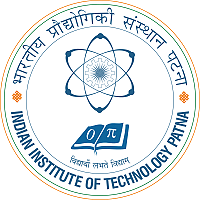Introduction about Ph. d in Pharmacy
A Ph.D. in Pharmacy from best college is an advanced academic degree program that prepares students for careers in
pharmaceutical research, academia, industry, and healthcare. This
doctoral-level program emphasizes advanced study and research in various
aspects of pharmaceutical sciences, including drug discovery, drug development,
pharmacology, pharmaceutics, pharmacokinetics, pharmacodynamics, and
pharmaceutical outcomes research.
Pharmacy Ph.D.
programs are interdisciplinary in nature, drawing upon principles from
chemistry, biology, physiology, pharmacology, and other related fields.
Students engage in rigorous coursework, research, and scholarly activities
designed to deepen their understanding of pharmaceutical sciences and
contribute to the advancement of knowledge in the field.
Throughout the
program, Ph.D. students work closely with faculty mentors and research teams to
conduct original research, publish scholarly articles, and present their
findings at conferences. Research topics within pharmacy Ph.D. programs may
encompass a wide range of areas, including:
Drug Discovery and
Development: Investigating
novel drug targets, drug design strategies, and formulation development to
improve the efficacy and safety of pharmaceutical agents.
Pharmacology and
Pharmacokinetics: Studying
the mechanisms of drug action, drug metabolism, drug interactions, and
pharmacokinetic profiles to optimize drug therapy and patient outcomes.
Pharmaceutical
Formulation and Delivery:
Developing innovative drug delivery systems, such as nanoparticles, liposomes,
and implants, to enhance drug stability, bioavailability, and targeted drug
delivery.
Clinical Pharmacy
and Pharmacotherapy:
Evaluating the effectiveness and safety of drug therapy in clinical practice,
conducting pharmacoeconomic analyses, and assessing pharmaceutical outcomes to
inform evidence-based healthcare decision-making.
Pharmaceutical
Policy and Healthcare Systems:
Analyzing pharmaceutical policies, regulations, and healthcare delivery systems
to address issues related to access, affordability, and quality of
pharmaceutical care.
Pharmaceutical
Education and Training:
Enhancing teaching methodologies, curriculum development, and assessment
strategies in pharmacy education to prepare future pharmacists and
pharmaceutical scientists.
Graduates of Ph.D.
programs in Pharmacy pursue diverse career paths, including academic positions
in universities, research positions in pharmaceutical industry or government
agencies, leadership roles in healthcare organizations, and consultancy positions
in pharmaceutical policy and practice. Their expertise and contributions play a
crucial role in advancing pharmaceutical sciences, improving patient care, and
addressing global health challenges.
What is admission process for Ph. d in Pharmacy?
The admission process for Ph.D. in Pharmacy can vary depending on the institution and program
requirements. However, here are the typical steps involved in the admission
process:
o Research Programs and Institutions: Begin by researching universities and
institutions offering Ph.D. programs in Pharmacy. Consider factors such as
program reputation, faculty expertise, research focus areas, and resources
available for doctoral students.
o Review Admission Requirements: Carefully review the admission
requirements for each program you're interested in. Common requirements may
include:
o A bachelor's or master's degree in Pharmacy,
Pharmaceutical Sciences, Pharmacology, Chemistry, Biology, or a related field
from an accredited institution.
o Minimum GPA requirements for previous
undergraduate or graduate coursework (typically around 3.0 on a 4.0 scale).
o Professional experience in pharmacy
practice, pharmaceutical research, or related fields (varies by program).
o Submission of standardized test scores (such
as the GRE or GMAT) may be required by some programs, although this requirement
is becoming less common.
o Prerequisite coursework in relevant subjects
such as organic chemistry, biochemistry, physiology, and pharmacology.
o Prepare Application Materials: Gather all required application materials,
which typically include:
o Completed application form (submitted online
or by mail).
o Official transcripts from all previous
colleges and universities attended.
o Letters of recommendation (usually from
academic or professional references who can speak to your qualifications and
potential for success in a doctoral program).
o Statement of purpose or personal statement
outlining your research interests, academic background, career goals, and
reasons for pursuing a Ph.D. in Pharmacy.
o Curriculum vitae (CV) or resume highlighting
your academic and professional achievements.
o Writing samples or research papers (if
applicable).
o Proof of professional licensure (if
applicable).
o Submit Applications: Complete and submit your applications by
the specified deadlines. Pay close attention to any additional requirements or
supplementary materials requested by each program.
o Interviews (if applicable): Some programs may require interviews as
part of the admission process. If selected, be prepared to discuss your
research interests, academic background, and career aspirations with faculty
members or admissions committee members.
o Wait for Decisions: After submitting your applications, you'll
need to wait for admission decisions from the programs to which you applied.
This process can take several weeks to several months, depending on the
institution.
o Acceptance and Enrollment: If accepted, you'll receive an acceptance
letter outlining any next steps, such as confirming your intent to enroll,
securing funding (if applicable), and completing any additional requirements
for enrollment.
It's essential to
carefully review the specific admission requirements and deadlines for each
program you're interested in to ensure you submit a complete and competitive
application. Additionally, reaching out to program coordinators or admissions
offices with any questions can provide valuable insight into the application
process and help you make informed decisions.
What is eligibility process for Ph. D in Pharmacy?
The eligibility process for a Ph.D. in Pharmacy typically involves ensuring that applicants
meet certain criteria set by the institution and the specific program. While
eligibility requirements can vary between programs, here are some common
criteria:
·
Educational
Background: Applicants are
generally required to hold a bachelor's or master's degree in Pharmacy,
Pharmaceutical Sciences, Pharmacology, Chemistry, Biology, or a closely related
field from an accredited institution. The degree should demonstrate a strong
foundation in pharmaceutical sciences or a relevant scientific discipline.
·
Minimum
GPA: Most programs have
minimum GPA requirements for previous undergraduate or graduate coursework.
Typically, applicants should have a GPA of at least 3.0 on a 4.0 scale,
although specific GPA requirements may vary between programs.
·
Relevant
Coursework: Applicants may
be required to have completed specific prerequisite coursework in relevant
subjects such as organic chemistry, biochemistry, physiology, pharmacology, and
pharmaceutical sciences. These prerequisite courses ensure that applicants have
the necessary background knowledge to succeed in advanced doctoral studies.
·
Professional
Experience: While not
always mandatory, some programs may prefer applicants who have relevant
professional experience in pharmacy practice, pharmaceutical research, or
related fields. Professional experience can demonstrate an applicant's
commitment to the field and provide valuable insights for doctoral studies and
research.
·
Standardized
Test Scores: Some programs
may require applicants to submit scores from standardized tests, such as the
Graduate Record Examination (GRE) or the Graduate Management Admission Test
(GMAT). However, this requirement is becoming less common in Ph.D. in Pharmacy
admissions. Be sure to check the specific requirements of each program
regarding standardized tests.
·
Letters
of Recommendation: Most
programs require applicants to submit letters of recommendation from academic
or professional references who can speak to their qualifications, achievements,
and potential for success in doctoral studies. These letters typically come
from professors, supervisors, or colleagues who are familiar with the
applicant's work.
·
Statement
of Purpose: Applicants are
usually required to submit a statement of purpose or personal statement
outlining their research interests, academic background, career goals, and
reasons for pursuing a Ph.D. in Pharmacy. This statement provides an
opportunity for applicants to demonstrate their passion for pharmaceutical
research and how they align with the program's objectives.
·
Interviews
(if required): Some
programs may require applicants to participate in interviews as part of the
admission process. Interviews allow admissions committees to assess applicants'
fit for the program and their potential for scholarly research in
pharmaceutical sciences.
·
It's
important to note that eligibility requirements may vary between programs, so
it's essential to carefully review the specific requirements of each Ph.D. in
Pharmacy program you're interested in before applying. Additionally, reaching
out to program coordinators or admissions offices can provide clarification on
any questions you may have regarding eligibility.
What is syllabus for Ph. D in Pharmacy ?
The syllabus for Ph.D. in Pharmacy can vary significantly depending on the institution, program
structure, and specific research interests of faculty members. However, here is
a general overview of potential topics that may be covered in the coursework
and research components of a Ph.D. program in Pharmacy:
o Core Pharmaceutical Sciences Courses:
o Advanced Medicinal Chemistry: Exploration of
drug design principles, structure-activity relationships, and synthetic
strategies for the development of pharmaceutical agents.
o Pharmacology and Pharmacodynamics: Study of
the mechanisms of drug action, including receptor pharmacology, signal
transduction pathways, and pharmacodynamic interactions.
o Pharmacokinetics and Drug Metabolism:
Analysis of drug absorption, distribution, metabolism, and excretion processes,
including pharmacokinetic modeling and drug-drug interactions.
o Pharmaceutical Formulation and Delivery:
Investigation of pharmaceutical dosage forms, drug delivery systems, and
formulation strategies to enhance drug stability, bioavailability, and patient
compliance.
o Research Methods and Design:
o Quantitative Research Methods: Introduction
to quantitative research methodologies, including experimental design,
statistical analysis techniques, and data interpretation in pharmaceutical
research.
o Qualitative Research Methods: Exploration of
qualitative research methodologies, such as grounded theory, phenomenology, and
case study research, focusing on data collection, analysis, and interpretation.
o Mixed Methods Research: Integration of
quantitative and qualitative research approaches, emphasizing the strengths and
limitations of each method and strategies for combining them effectively in
pharmaceutical research.
o Pharmaceutical Sciences Electives:
o Advanced Pharmacogenomics: Examination of
genetic variation in drug response, personalized medicine approaches, and
pharmacogenetic testing in clinical practice.
o Biopharmaceutics and Pharmacokinetic
Modeling: Study of drug absorption, distribution, metabolism, and excretion
processes using mathematical modeling and simulation techniques.
o Pharmaceutical Biotechnology: Investigation
of biotechnological approaches to drug discovery, including recombinant DNA
technology, monoclonal antibodies, and gene therapy.
o Advanced Topics in Pharmacy Practice:
o Clinical Pharmacy and Pharmacotherapy:
Evaluation of drug therapy outcomes, medication management strategies, and
clinical decision-making processes in patient care settings.
o Pharmaceutical Care and Patient Counseling:
Development of communication skills and patient counseling techniques for
promoting medication adherence, preventing medication errors, and optimizing
patient outcomes.
o Pharmacy Administration and Healthcare
Management: Analysis of healthcare delivery systems, healthcare economics, and
pharmacy practice management principles, including regulatory compliance,
quality assurance, and risk management.
o Dissertation Research:
o Dissertation Proposal Development:
Development of a research proposal for the doctoral dissertation, including
literature review, research questions, methodology, and timeline.
o Dissertation Data Collection and Analysis:
Conducting original research under the supervision of a faculty mentor,
including data collection, analysis, and interpretation.
o Dissertation Writing and Defense:
Preparation of the doctoral dissertation manuscript and oral defense before a
committee of faculty members and peers.
o It's important to note that the specific
courses and research experiences offered in a Ph.D. program in Pharmacy may
vary between institutions. Students are often encouraged to work closely with
their academic advisors and dissertation committees to tailor their coursework
and research experiences to their individual interests and career goals.












